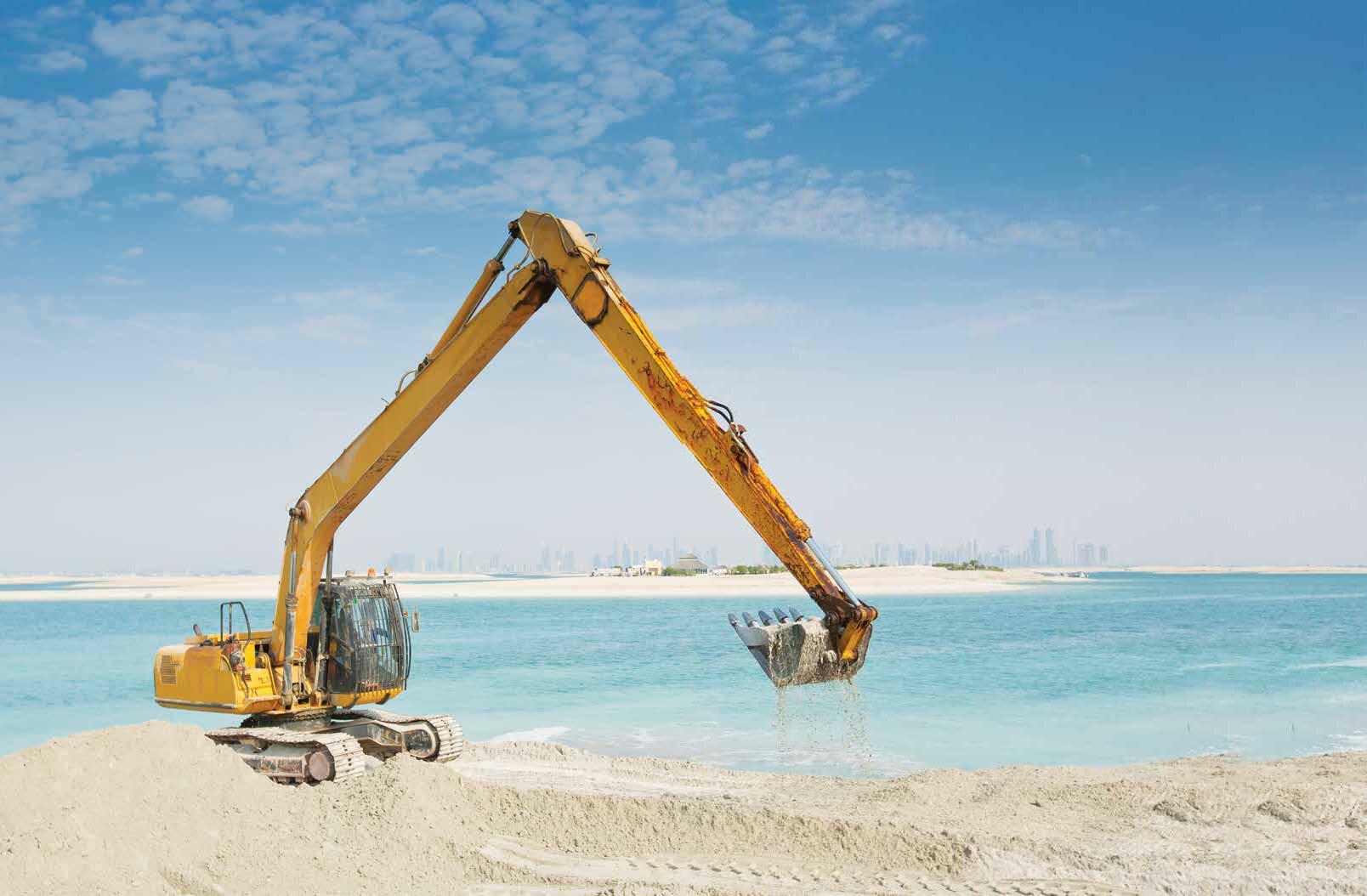
Widespread awareness of the importance of sand and the drastic effects of dredging is the first step to saving sand. Over the last decade, the Government of India has passed several regulations to curb sand mining, which could serve as a starting point.
First, it was water, and now sand too is getting depleted at a fast rate, thanks to sand dredging. A 2023 finding by the United Nations (UN) warns that marine dredging is responsible for excavation of six billion tonnes of sand and sediment, every year, which is equivalent to one million dump trucks every day. This endangers marine life, well-being of coastal communities, and depletion of sand which is the second most used natural resource in the planet, after water. Going by the staggering statistics and if the indiscriminate practice of sand extraction persists, we might soon run out of sand.
Sand Watch
Sand dredging is a process of excavation of sand, silt and other sediment from the bottom of water bodies using large machinery like the dredger which acts as a vacuum to remove the sediment. Dredging is done for various purposes such as beach reclamation, maintaining waterways for smooth navigation of boats and ships, and commercial purposes like construction. But, sand dredging could do more harm than good, if not planned adequately.
هذه القصة مأخوذة من طبعة January 2024 من TerraGreen.
ابدأ النسخة التجريبية المجانية من Magzter GOLD لمدة 7 أيام للوصول إلى آلاف القصص المتميزة المنسقة وأكثر من 9,000 مجلة وصحيفة.
بالفعل مشترك ? تسجيل الدخول
هذه القصة مأخوذة من طبعة January 2024 من TerraGreen.
ابدأ النسخة التجريبية المجانية من Magzter GOLD لمدة 7 أيام للوصول إلى آلاف القصص المتميزة المنسقة وأكثر من 9,000 مجلة وصحيفة.
بالفعل مشترك? تسجيل الدخول

IBM's State of Sustainability Readiness Report 2024 Shows India is a Leader in Al-Driven Sustainability Initiatives
Business leaders in India see the benefits of investing in IT for sustainability, with 98 per cent planning to increase investments in IT for sustainability over the next 12 months. Around 96 per cent of Indian executives surveyed believe AI will positively influence sustainability goals.

Sustainable Low-Carbon Heat Network For Meeting Woking Town Centre's Needs in London
In this article, Dr Marianne Furtado de Nazareth highlights that sustainable low-carbon heat network at Woking Town Centre in UK, London is a wonderful project as it will allow Woking to grow and develop in a sustainable way, utilizing low-carbon heat to meet the town's needs.

The True Cost of Wildfires
More than Dollars and Cents

Staying Connected with Nature With Our Daily Routines and Lifestyle
In this article, N Kalyani discusses how disconnected we are from nature, both in terms of using natural and organic products and aligning our lives with the natural world. Given the current state of our lives, it would be valuable and intriguing to explore ways—no matter how small-to reconnect with nature through our daily routines and lifestyle.
Tiger: Iconic Symbol of Asia
When Stripes Drew a Country’s Borders

Sacred Groves Help Community in Watershed Management
Pioneering Initiative in Velhe

Role of AI in Achieving Renewable Energy Goals For an Environmentally Sustainable Future
In this article, A Jyothi Mahalingam highlights how artificial intelligence (AI) has become crucial for sustainable renewable energy (RE) generation, driven by the growing demand for electricity.

The Global Plastic Crisis
Current Situation and Strategies to Combat Plastic Pollution

GRIHA Certification
The Green Gold Standard Transforming India's Real Estate Market

Decoding the Union Budget 2025
A Green Lens on Energy, Resilience, and Sustainable Development